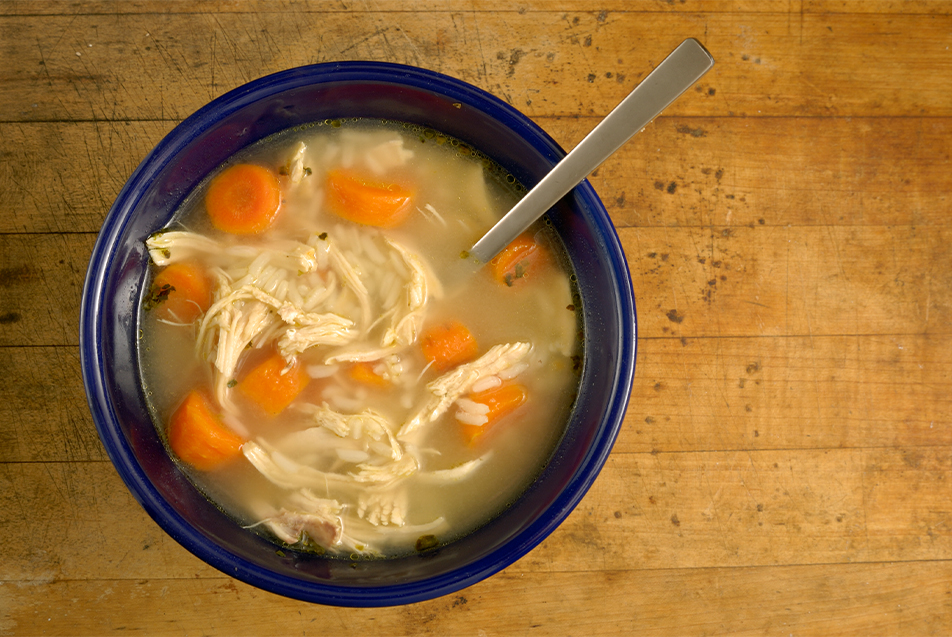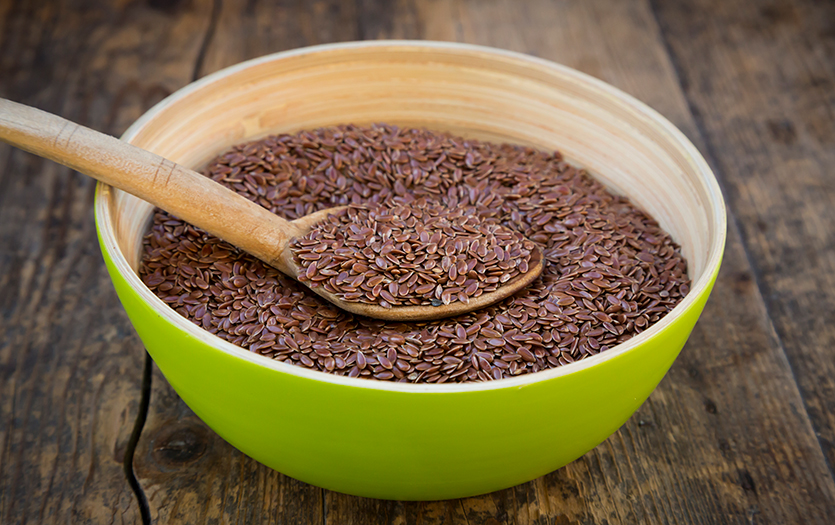
This post was written by Alison Schuler, MA, RDN, LD, clinical dietitian, Parkview Health.
In the past, when you had a cold or were feeling under the weather, the remedy might have been a nice warm bowl of chicken soup. Somehow, it seemed to cure anything, but does it really help? Is there any science behind this simple soup filled with noodles and vegetables?
A brief history
The use of chicken soup dates back many, many years. An Egyptian Jewish doctor and philosopher, Moshe ben Maimon, suggested people consume chicken soup to help relieve respiratory maladies in the 12th century. He was making his recommendations based on early Greek writings, dating its history back even further.
Runny nose research
In 1978, doctors at Mount Sinai in Miami Beach looked at nasal “mucous velocity,” or how fast nasal mucus would flow with faster being better in terms of decongestion, meaning you are less congested if the mucus can flow out of your nose. In the study, the doctors compared the differences among subjects who drank hot water, hot chicken soup or cold water. Participants drank hot liquids by sipping or using a straw, whereas those drinking cold water only sipped. They wanted to see if nasal congestion was influenced by inhaling the steam or merely consuming the liquid itself when utilizing a straw.
They found that hot liquids worked better in terms of mucus velocity. Drinking through a straw slowed the mucus a bit, but they still noted a statistical significance and positive result with the chicken soup both ways and with the hot water, but only when sipped. Subjects who drank the hot water through a straw or sipped the cold water did not see these differences in mucus.
They concluded that the results had something to do with the inhalation of vapors and soup ingestion. Even when compared to the sipped hot water, the chicken soup still showed a more significant increase in nasal mucus velocity and decongestion, whether it was sipped or sucked through a straw. However, before we get too excited, we should note that all participants’ mucus returned to baseline after 30 minutes, except for those drinking the cold water. It decreased their mucus velocity, meaning the mucus was less likely to move, causing congestion in the nasal cavities.
What can we conclude from these findings? That hot liquids, specifically chicken soup, can cause a temporary loosening or decongestion in the nose and, according to these results, cold water may increase congestion. So, if you’re suffering from an upper respiratory tract infection, it might be in your best interest to sip on some chicken soup or other warm liquids throughout the day rather than cold ones for relief.
A closer examination
Later, in the 1990s, Dr. Stephen Rennard, a doctor and professor at the University of Nebraska decided to put chicken soup under the medical microscope. In 2000, he published his results in a peer-reviewed medical journal called CHEST, which covered chest diseases and other related issues. They looked specifically at neutrophils, the white blood cells that come to our defense when an infection is present. Their reaction is what creates our congestion and symptoms when we feel bogged down with a cold.
Interestingly, Dr. Rennard observed that the neutrophils became less active when exposed to chicken soup, thereby lessening the symptoms associated with upper respiratory infections. The chicken soup he used for his research contained the following ingredients: chicken, onions, sweet potatoes, parsnips, turnips, carrots, celery stems, parsley, salt and pepper. His wife prepared the original batch of soup used in his research. He divided it into three batches, which he took to his lab to study under controlled conditions. Once he established the original recipe had a seemingly anti-inflammatory effect on neutrophils, he moved on to others. They tried all varieties of chicken noodle soup, store-bought, canned, prepared, etc., and no matter the method, they all had the anti-inflammatory effect seen in the original homemade soup.
Despite his research and findings, he and his team did not look at the specific ingredients and their effectiveness with fighting colds. Instead, they theorized that it could be a combination of ingredients that work together. This vantage point isn’t dissimilar from the views held by many researchers in nutrition science, believing it’s a combination of foods that keep us healthy.
Final thoughts
No matter what you choose to eat or drink when you have a cold, it’s best to stay hydrated and feed your body healthful foods. Since most of us don’t get enough vegetables, adding some vegetable-rich chicken soup is a comforting way to add a nutritional punch to your diet, whether you have a cold or not.
If you’re curious about the chicken soup Dr. Rennard used, here’s a copy of the recipe. It gets this dietitian’s stamp of approval for containing more vegetables than most. Happy eating!
Grandma’s chicken soup recipe
- Clean the chicken, put it in a large pot and cover it with cold water. Bring the water to a boil.
- Add the chicken wings, onions, sweet potato, parsnips, turnips and carrots. Boil for about one and a half hours. Remove fat from the surface as it accumulates.
- Add the celery and parsley. Cook the mixture about 45 minutes longer.
- Remove the chicken. The chicken is not used any further in the soup, but it does make excellent chicken parmesan.
- Put the vegetables in a food processor and chop until they are finely chopped or can pass through a strainer. Both were performed in the present study.
- Add salt and pepper to taste, then enjoy! (Note: This soup freezes well.)
Resources
Saketkhoo K, Januszkiewicz A, Sackner MA. Effects of drinking hot water, cold water, and chicken soup on nasal mucus velocity and nasal airflow resistance. Chest. 1978 Oct;74(4):408-10. doi: 10.1378/chest.74.4.408. PMID: 359266.
Barbara O. Rennard, Ronald F. Ertl, Gail L. Gossman, Richard A. Robbins, Stephen I. Rennard, Chicken Soup Inhibits Neutrophil Chemotaxis In Vitro, Chest, Volume 118, Issue 4, 2000, Pages 1150-1157, ISSN 0012-3692, https://doi.org/10.1378/chest.118.4.1150.



